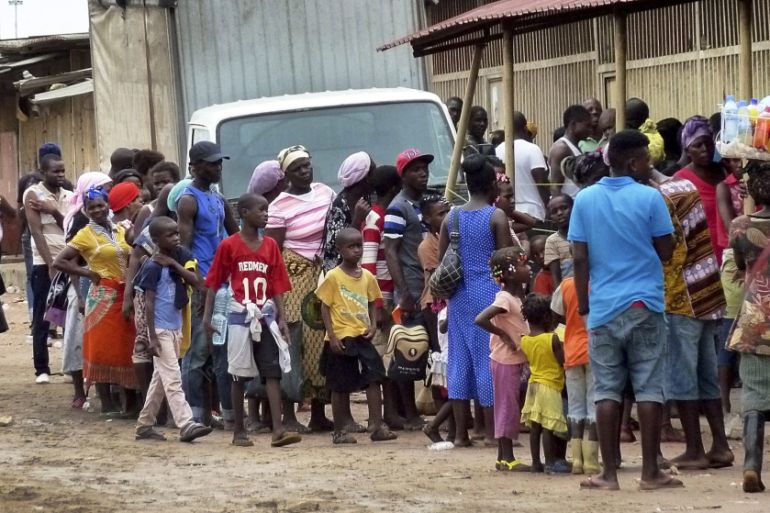Deadly yellow fever epidemic flares up in Angola
At least 50 people killed and 241 infected in the first outbreak of the disease in the country in decades.

A yellow fever outbreak in Angola has killed 51 people, in the first epidemic of the disease to hit the country in 30 years, official statistics showed on Monday.
A total of 241 people were now infected, the southern African country’s national director of public health, Adelaide de Carvalho, said. More than 450,000 people had been vaccinated in the capital of a target of nearly 1.6 million, she added.
Keep reading
list of 4 itemsAmid global polarisation, the pandemic agreement encourages cooperation
Sunak apologises after report finds UK government covered up blood scandal
Philippines plans vaccination drive as whooping cough outbreak claims lives
|
|
The centre of the outbreak is the capital Luanda’s eastern suburb of Viana, where 29 deaths and 92 cases have been reported over the past six weeks, she said.
There is no specific treatment for the viral haemorrhagic disease which is transmitted by infected mosquitoes and found in tropical regions of Africa and Latin America’s Amazon region.
Yellow fever symptoms include severe headache, nausea, vomiting and fatigue, according to the World Health Organization.
The disease can enter a toxic phase in some people, leading to organ failure and death.
Poor sanitation is being blamed for stoking the outbreak, by providing fertile breeding grounds for mosquitoes.
Angola lies in the yellow fever belt of Africa where vaccination against the disease is recommended.
READ MORE: Zika outbreak in Brazil: In search of answers
The southern African country relies on crude exports for around 95 percent of its foreign exchange earnings and a 70 percent decline in oil prices since mid-2014 has hobbled Africa’s third largest economy, sending the kwanza currency plummeting.
City authorities have slashed their budget for rubbish collection to cope with a budget crisis, leaving piles of waste building up in poorer suburbs including Viana, where the first case of yellow fever was reported in late December.
Many sanitation contractors say they have not been paid, or are struggling to import equipment because of foreign exchange shortages.
There has also been an increase in malaria, cholera and chronic diarrhoea, according to health officials.